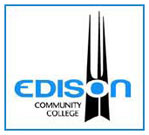|

 |
DCCA’s Kuniko
Yamamoto
By Brittany Martino
Humanities 121, Edison Community College
Monday, October 17
About this article…
see editor’s note below
One of my group projects that I attended was the Kuniko Yamamoto
performance. Before going, I did some research about her. In the
research I found that she enchants audiences of every age with dramatic
storytelling, using myths and fables from ancient and modern Japan,
spiced with social revelations to educate and amuse. Kuniko uses
traditional Japanese music, handcrafted masks, stylized movements, and
a touch of magic to create an artistic balance of illusion and reality.
And that is exactly what the performance was.
Kuniko Yamamoto began the performance with an introduction about
herself. She included some comedy about learning English, which I
thought she spoke very well. Half of the show she dedicated to smaller
children in the audience and then the other half to the adults. Kuniko
had the audience involved in singing along tunes, performing magic
tricks, and also playing a game. The game that we played as an audience
was just like the game that we play in America called Rock, Paper, and
Scissors. Except this Japanese game was White Fox, Hunter, and People.
She told many interesting stories during the performance. She expressed
the stories in many different ways. Kuniko would use origami in most of
the stories, and also use masks and other small props, but she would
dance around and use her hands to tell the story too. She showed us
many ways to take just one piece of paper and transfer it into many
shapes (origami). She had two masks that she told stories with. One of
the masks was to represent a man that would eat your bad dreams.
Another mask was the face of a white fox, which is when we played that
game.
Kuniko told ancient stories such as one about a little woman and also
the dragon symbol. Both of those stories were pretty interesting. She
also told us that Godzilla is a symbol of the volcano in Japan. Also
that smiling and laughing is a symbol of self-control and also staying
positive, which is why you also see Japanese people smiling quite
often. They do not like to ever say no. A couple things that Kuniko had
said that I thought was nice were that in Japanese, the word “Ohio”
means “good morning”. She also said “butterflies are the symbol of
life”.
Her last performance for the night was astonishing, in my perspective.
And I think that it too “wowed” the crowd. She used a sushi mat to tell
a story. First, she explained how to use the mat to make the sushi roll
and use it for other things. Such as like she said if you are bored in
the kitchen, you can use it to make music or you can be Jackie Chan.
But then she turns on some beautiful Japanese music and begins to tell
her story using the sushi mat in many different ways. She made the
bamboo mat turn into so many shapes. The way that the music was playing
and the way she was using the mat to tell her story was amazing in my
eyes. It literally gave me chills when I was watching her perform this
last act. Kuniko made the mat look like two flags, flapping in the
breeze while she said “Today, you and I, side by side, like two flags,
a friendship of traditions, fireworks to celebrate our future and
history.”
I thought that going to see Kuniko Yamamoto was a wonderful experience.
And I would definitely recommend anyone, even little children, to see
her live performance. In my eyes, some of the things that were done by
her, I would consider it to be art. Japanese culture is so different
from ours and the way that Kuniko expressed those things, was art to
me. It is valuable and historical to many people in this world, which
is why many others including myself, would look at this performance to
be art. But I know that not everyone will agree with that. As I talked
to one other of my group members, she looked at the performance as
artlike. But like the book says, what is revelatory to one person or
one culture might not be to another.
Editor’s note: Last
fall I taught “Art in the Humanities,” an introductory level course at
the Edison Darke County Campus. Among the many projects the students
addressed were different forms of art, from painting and television, to
visits to DCCA events, Bears Mill, Garst Museum and Shawnee Prairie.
The purpose was to discuss their evaluation of how the assignments
related to “art” and/or the “humanities.” Some of the best reports will
be presented, with the student’s permission, on County News Online. The
opinions expressed in these reports have not been altered in any manner.
|
|
|
|

